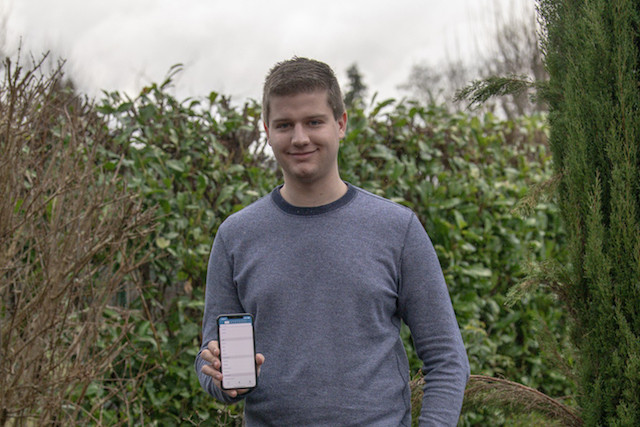Released at the end of November, Wierderbuch is a digital dictionary, translating words from Luxembourgish into English, French and German.
“In the first week I had 1,200 downloads, now it has around 2,000 downloads in just two weeks,” Frisch told Delano on Tuesday, adding: “I’ve other apps which don’t have that many downloads after two years!”
Frisch, who is in his final year of a computer science bachelors degree at the Karlsruhe Institute of Technology, in Germany, said he had the idea in March 2018 when he stumbled across a huge database of open data on lod.lu. He converted the data in two weeks and then developed the app, entirely on his own initiative.
The final result created such a buzz, it even reached the attention of the government. “The day of the [app] release, I got an email that the secretary of state [for culture, Guy Arendt] would like to see me and congratulate me for the good work,” Frisch said.
Frisch’s interest in computer science developed as a child when his father, a teacher at his high school in Diekirch, would bring home computer problems, which he worked on.
First application
At the age of 12, he started on his first application, a Latin vocabulary tool to help him in class. “It wasn’t approved by Apple because I had no experience in programming,” he explained. Not put off by this setback, he went on to develop an application for his school, providing an information and photo platform as well as a calculator for students to work out their average scores. The experience he gained in the intervening years meant he fixed the flaws in his Latin app, which was later published as Latin Book.
His interest in application development, he said, stems from the combination of applying computer thinking to solve a problem and make data publicly available, and also in sharing his country’s language. “I know many people who try to learn Luxembourgish have problems because they don’t have a real dictionary and there are not that many materials available,” he said.
Free of charge
Today Frisch has some 18 applications in the app store, all of which are free to download. “That’s important for me because when it’s free, more people will download it,” he explained, adding that he also prefers helpful applications to be free of charge.
Frisch’s next project is to create an application for Acel, the association for the Luxembourg student groups. The app would provide a search tool for prospective students to find which universities by course offers as well as information on student life at the main universities where Luxembourg students are studying and a GDPR-compliant registration element.
